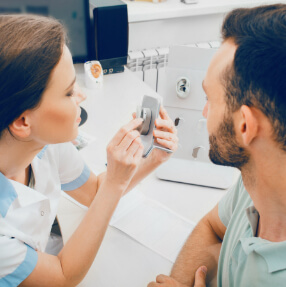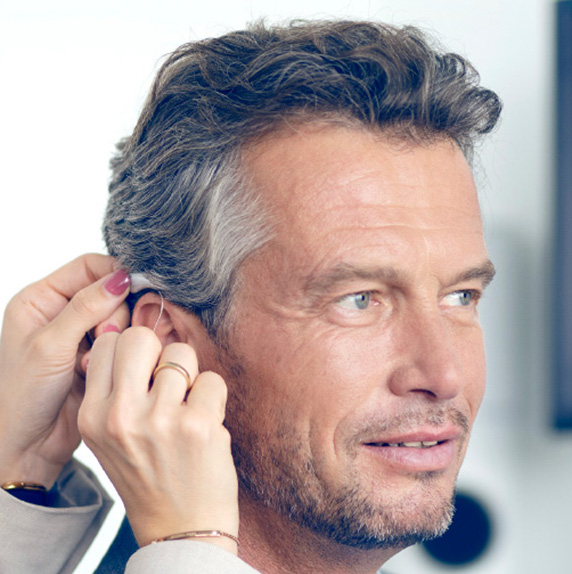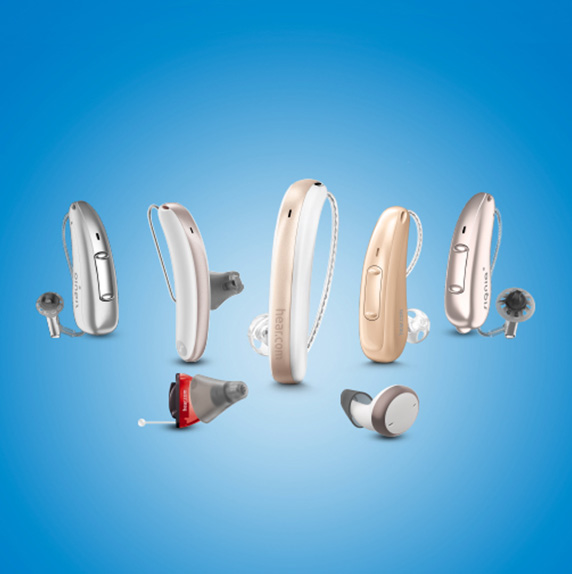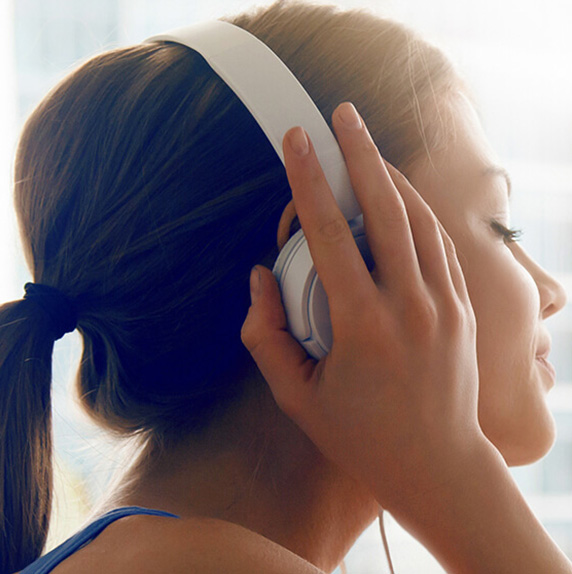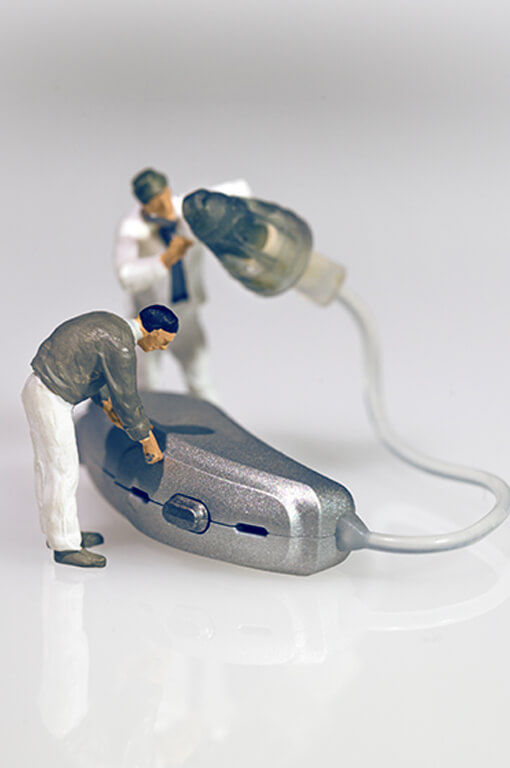
Smart hearing aids from hear.com - world's leading hearing care provider
Hearing aid cleaning
Hearing aids are used every day and in wind and weather. As our loyal companions and helpers, they are exposed to a lot of stress: Heat, dust, physical stress, but also simply ear wax and sweat, can easily make the mini high-performance computers dirty, clog microphone inputs or stick volume controls. In order to ensure that your devices function properly and last as long as possible, it is therefore important to clean hearing aids regularly.
Find out here how and with what to care for your hearing aid, where to store it and what you should absolutely avoid when using your hearing system.
Table of Contents
- You need to be aware of this
- Cleaning of hearing aids
- Storage and drying
- 10 tips for care
How are hearing aids cleaned?
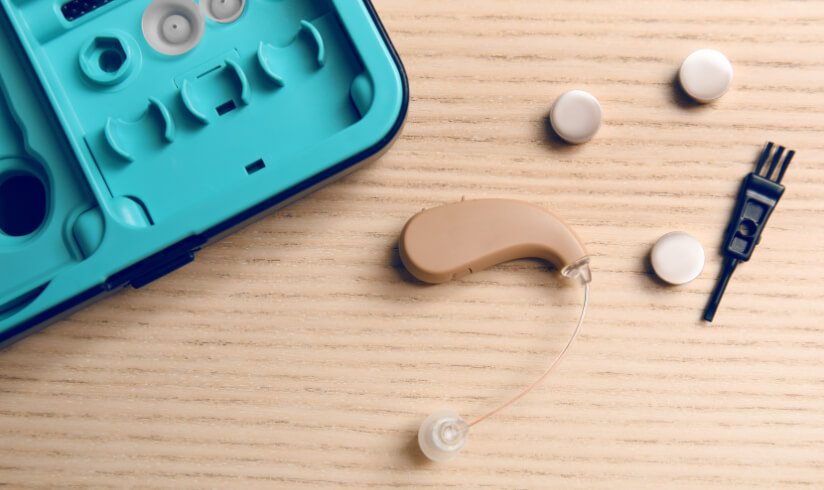
Hearing aids are with us all day long, they are with us everywhere and can do a lot. Regular hearing aid cleaning is essential so that you can always hear well and benefit from your hearing aid for a long time. You can do this yourself at home. Professional cleaning by an audiologist may also be needed from time to time.
What should you clean hearing aids with?
Regardless of whether it is an in-the-ear or behind-the-ear model: the hearing device should not get too wet (never put your hearing aids in water!). It is advisable to moisten a microfiber cloth or a piece of kitchen paper with a special disinfectant and gently rub the hearing aid with it. You can obtain suitable products for the care of hearing systems and suitable cleaning sets (e.g. with special cloths and brushes) from your acoustician. Never use detergent, alcohol or cleaning agents with aggressive substances.
How often should you clean hearing aids?
Sweat and cerumen (ear wax) can quickly contaminate hearing aids. The more pronounced the cerumen and sweat formation, the more often you should clean your device. However, it is best to get used to checking and cleaning your hearing aid for any visible contamination on a daily basis. Make hearing aid cleaning a part of your daily routine – like brushing your teeth.
Cleaning in-the-ear hearing aids (ITE)
In-the-ear hearing aids (ITE) are exposed to greater exposure to body fluids (ear wax and sweat) and therefore usually have to be cleaned more often than behind-the-ear hearing aids (BTE) or hearing aids with an external receiver. When cleaning these tiny high-tech devices, you should be careful not to damage the microelectronics hidden in them. The device must never come into direct contact with water. Suitable materials to remove dirt from sensitive hearing aids are dust-free, soft cloths or special cleaning cloths that you can obtain from the acoustician.
Cleaning behind-the-ear hearing aids (BTE)
Behind-the-ear hearing aids (BTE) are less sensitive than in-the-ear hearing aids (ITE). Its housing can simply be rubbed with a dust-free cloth. In addition, with this type of hearing aid, regular cleaning of the earmolds (otoplastics) and umbrellas (domes) is necessary. To clean them, first, disconnect them from the receiver and then wipe them with a suitable disinfectant. There are special cleaning swabs for stubborn dirt. If necessary, brushing gently with a soft toothbrush can also help.
Why does a hearing aid need to be dried?
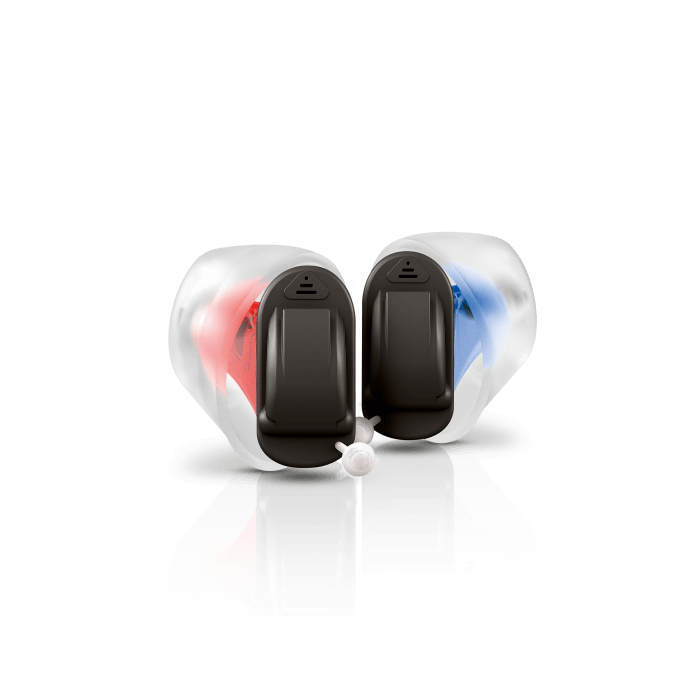
Hearing aids work in a subtropical climate, so to speak: They are worn in or behind the ear and in this area there is a temperature of approx. 37 degrees Celsius and a humidity of almost 100% – similar to the subtropics. This moisture collects in the devices and should be removed regularly to avoid damage to the technology.
How often should hearing aids be dried?
The condensation caused by the humidity collects in your hearing aids every day. To avoid unnecessary damage, it is therefore advisable to dehumidify hearing aids every day. Simply put it in the drying device overnight and use it again the next morning, well-dried. Always make sure to open the compartment for the batteries and choose a room with a rather dry climate as the location for the dry box. The bathroom and kitchen are unsuitable due to the high humidity. The bedroom can also be questionable because of the moisture released when you breathe.
How to dry hearing aids
To properly dry hearing aids, there are special dry boxes, dry cases or dry cups that you can get from audiologists, and many of our models come equipped with drying cases. These are small containers that remove the accumulated moisture from the mini-computers overnight. All you have to do is put in your hearing aids with the battery compartment open (this is important so that this too can be dried) and press a small button. The climate and drying time are then automatically regulated.
10 tips for caring for and storing hearing aids
- Always protect your hearing aids from dirt. The microphone inputs can easily be clogged with dirt particles.
- Make sure that your hands are clean and dry when they come into contact with the devices.
- Do not expose your hearing systems to unnecessary moisture. Take out your hearing aids before showering or swimming and make sure your ears are dry before putting them back on. Never put the device in water for cleaning.
- Do not use alcohol or aggressive cleaning agents for maintenance.
- Do not keep your hearing aids in the bathroom or kitchen, these rooms are too humid.
- Dry your hearing system at night in a dry box. In these small boxes, your hearing aids dehumidify much faster than in air. Make sure that you leave the battery compartment open.
- Do not expose your hearing aids to excessive heat. Never place the devices in the oven, microwave or on the heater and avoid direct sunlight.
- Protect the hearing systems from cosmetic products such as make-up and hairspray. These can stick the microphone and the volume control together. In order to avoid such soiling, it is best to take the device out briefly while using cosmetics.
- Do not carry out any repairs yourself. Hearing aids are sensitive mini-computers that have to be handled professionally in the event of damage. Never penetrate your hearing aids with sharp objects (scissors, needles, etc.).
- Always transport your hearing aids in a suitable box when they are not being used to ensure their protection from dust etc.


